The History Book Club discussion

This topic is about
The First Tycoon
AMERICAN HISTORY
>
NOVEMBER 2016 - The First Tycoon: The Epic Life of Cornelius Vanderbilt
 Praise and Reviews:
Praise and Reviews:“A penetrating portrait of a complex, self-made titan.”
-Citation for the Pulitzer Prize in Biography 2010
“With deep and imaginative research and graceful writing, T. J. Stiles’s The First Tycoon tells the extraordinary story of a brutally competitive man who was hard to love but irresistibly interesting as a truly pivotal historical figure. With few letters and no diaries, and with layers of legend to carve through, Stiles captures Cornelius Vanderbilt as a person and as a force who shaped the transportation revolution, all but invented unbridled American capitalism, and left his mark not only all over New York City but, for better or worse, all over our economic landscape.”
-Citation for the National Book Award in Nonfiction 2009
“T.J. Stiles presents the magnate as a man in full.”
-Boston Globe Best Books of 2009
“Stiles writes with care and panache about the quintessential ‘robber baron,’ a man widely revered as well as hated.”
-The New York Times 100 Notable Books of 2009
“A definitive biography . . . Stiles brings the Commodore, warts and all, to life in this new study, which is at once up-to-date in scholarly terms, analytically incisive, and lucidly written.”
-Raleigh News and Observer Best Books of 2009
“A monumental biography.”
-The Kansas City Star Top 100 Books of 2009
“At long last a biography worthy of the Commodore, meticulously researched, superbly written, and filled with original insights.”
-Maury Klein, author of The Life and Legend of Jay Gould
“T.J. Stiles writes with the magisterial sweep of a great historian and the keen psychological insight of a great biographer. The First Tycoon is the fullest, most perceptive chronicle ever written of the life and times of Cornelius Vanderbilt, the epitome of unfettered, winner-take-all capitalism. With panache and admirable ease, Stiles maps the financial and political currents on which Vanderbilt buccaneered and shows that it was Vanderbilt, more than anyone else, who enabled business to evolve into Big Business.”
-Patricia O’Toole, author of When Trumpets Call: Theodore Roosevelt After the White House
“T.J. Stiles has given us a balanced and absorbing biography of this colorful and often ruthless entrepreneur, the first of the ‘robber barons’ who transformed the American economy in the nineteenth century.”
-James M. McPherson, author of Battle Cry of Freedom: The Civil War Era
“The First Tycoon is a brilliant exposition of the life of Cornelius Vanderbilt and the entrepreneurial environment that he shaped. Readers will look at Grand Central Station and much else in American life with fresh eyes.”
-Joyce Appleby, author of The Restless Revolution: A History of Capitalism
“The definitive biography of Commodore Vanderbilt. Both as portrait of an American original and as a book that brings to life an important slice of American history long neglected, this is biography at its very best. A magnificent achievement.”
-Arthur Vanderbilt II, author of Fortune’s Children: The Fall of the House of Vanderbilt
“In this whacking new biography of Vanderbilt, T. J. Stiles . . . demonstrates a brute eloquence of his own. This is a mighty—and mighty confident—work, one that moves with force and conviction and imperious wit through Vanderbilt’s noisy life and times . . . I read eagerly and avidly. This is state-of- the-art biography, crisper and more piquant than a 600-page book has any right to be.”
-Dwight Garner, The New York Times
“The illuminating, authoritative portrait of Vanderbilt that has been missing for so long.”
-Alice Schroeder, The Washington Post
“Very absorbing . . . [The First Tycoon] is in fact much more than a biography. The book is filled with important, exhaustively researched and indeed fascinating details that would profit every student of American business and social history to read.”
-Richard M. Abrams, San Francisco Chronicle
“Perceptive and fluently written . . . Stiles writes with both the panache of a fine journalist and the analytical care of a seasoned scholar. And he offers a fruitful way to think about the larger history of American elites as well as the life of one of their most famous members.”
-Michael Kazin, The New York Times Book Review
“Monumental and outrageously entertaining . . . Stiles writes in a style the Commdore would have appreciated: swift, economical and direct, daring but never hyperbolic. The nearly 600 pages of text seem to fly through your hands . . . Stiles has a genuine gift for putting complex historical subjects into perspective without lapsing into revisionism.”
-Allen Barra, truthdig.com
“Monumental . . . Stiles has a gift for making readers admire unsavory characters. When I put down this arresting saga . . . I raised a toast to everything the old rascal did for the U.S. . . . [The First Tycoon] resembles a five-course meal at a three-star restaurant: rich and pleasurable.”
-James Pressley, Bloomberg.com
“Superbly written and researched . . . Worthy of its subject.”
-The Economist
“Sweeping . . . [A] magisterial, exemplary work . . . [that] offers entry into the storm-tossed world of our current tycoons and the rough waters they have piloted us into.”
-William Bergman, American History Magazine
“Superbly researched and elegantly written . . . Stiles’s will likely prove to be the definitive biography of this epic entrepreneur.”
-Martin Morse Wooster, Philanthropy Magazine
“Stiles has painted a full-bodied, nuanced picture of the man . . . Elegance of style and fair-minded intent illuminate Stiles’s latest . . . profound exploration of American culture in the raw.”
-Carlo Wolff, The Boston Globe
“The First Tycoon has been widely praised, and rightly so . . . [An] epic biography.”
-Sam Roberts, The New York Times
“Vanderbilt’s story is indeed epic, and so is The First Tycoon . . . Stiles is a perceptive and witty writer with a remarkable ability to paint a picture of the America in which Vanderbilt lived.”
-Randy Dotinga, The Christian Science Monitor
“Shrewd . . . As he did in his much-acclaimed Jesse James, Stiles limns the meteoric career of an impetuous spirit. Rich in detail, the narrative reveals much about not only the unschooled genius . . . but also the national culture he helped transform . . . A landmark study.”
-Starred review, Booklist
“Rousing . . . An exemplary biography.”
-Starred review, Kirkus
“Thoroughly researched . . . Stiles meticulously separates myths from facts in a book that compares favorably with David Nasaw’s Andrew Carnegie . . . Dispassionately revising our portrait of Vanderbilt, Stiles has produced a work highly recommended.”
-Starred review, Library Journal
 Remember the following:
Remember the following:Everyone is welcome but make sure to use the Goodreads spoiler function.
If you come to the discussion after folks have finished reading it, please feel free to post your comments as we will always come back to the thread to discuss the book.
The rules
You must follow the rules of the History Book Club and also:
First rule of Book of the Month:
Respect other people's opinions, no matter how controversial you think they may be.
Second rule of Book of the Month:
Always, always Chapter/page mark and spoiler alert your posts if you are discussing parts of the book.
To do these spoilers, follows these easy steps:
Step 1. enclose the word spoiler in forward and back arrows; < >
Step 2. write your spoiler comments in
Step 3. enclose the word /spoiler in arrows as above, BUT NOTE the forward slash in front of the word. You must put that forward slash in.
Your spoiler should appear like this:
(view spoiler)
And please mark your spoiler clearly like this:
State a Chapter and page if you can.
EG: Chapter 24, page 154
Or say Up to Chapter *___ (*insert chapter number) if your comment is more broad and not from a single chapter.
Chapter 1, p. 23
(view spoiler)
If you are raising a question/issue for the group about the book, you don't need to put that in a spoiler, but if you are citing something specific, it might be good to use a spoiler.
By using spoilers, you don't ruin the experience of someone who is reading slower or started later.
Thanks.
 Contents
ContentsList of Illustrations xi
List of Maps xv
Part One
CAPTAIN 1794-1847
1 The Islander 3
2 The Duelist 36
3 A Tricky God 64
4 Nemesis 92
5 Sole Control 119
6 Man of Honor 136
Part Two
COMMODORE 1848-1860
7 Prometheus 163
8 Start of the West 194
9 North Star 223
10 Ariel 253
11 Vanderbilt 277
12 Champion 298
Part Three
KING 1861-1877
13 War 335
14 The Origins of Empire 365
15 The Power to Punish 402
16 Among Friends 438
17 Consolidations 474
18 Dynasty 518
Epilogue 563
Acknowledgements 573
Biographical Essay 579
Notes 589
Primary Source Bibliography 691
Index 703
 FOR THOSE WHO WOULD LIKE A SUGGESTED WEEKLY SYLLABUS
FOR THOSE WHO WOULD LIKE A SUGGESTED WEEKLY SYLLABUSNOVEMBER 1ST THROUGH NOVEMBER 6TH
1 The Islander 3
2 The Duelist 36
3 A Tricky God 64
4 Nemesis 92
5 Sole Control 119
NOVEMBER 7TH THROUGH NOVEMBER 13TH
6 Man of Honor 136
7 Prometheus 163
8 Start of the West 194
9 North Star 223
10 Ariel 253
NOVEMBER 14TH THROUGH NOVEMBER 20TH
11 Vanderbilt 277
12 Champion 298
13 War 335
14 The Origins of Empire 365
NOVEMBER 21ST THROUGH NOVEMBER 27TH
15 The Power to Punish 402
16 Among Friends 438
17 Consolidations 474
NOVEMBER 28Th THROUGH NOVEMBER 30TH
18 Dynasty 518
Epilogue 563
Acknowledgements 573
Biographical Essay 579
Notes 589
Primary Source Bibliography 691
Index 703
 Those of you who are going to read The First Tycoon: The Epic Life of Cornelius Vanderbilt use the spoiler html because this is a single thread discussion.
Those of you who are going to read The First Tycoon: The Epic Life of Cornelius Vanderbilt use the spoiler html because this is a single thread discussion. 1. Read message 4 and that message shows you the rules for the buddy read discussion and how to do the spoiler html.
2. Message 5 actually shows you the spoiler html code. Use it on this thread.
3. Where is the Table of Contents and the reading syllabus? - Message 6 and 7.
 All, we do not have to do citations regarding the book or the author being discussed during the book discussion on these discussion threads - nor do we have to cite any personage in the book being discussed while on the discussion threads related to this book.
All, we do not have to do citations regarding the book or the author being discussed during the book discussion on these discussion threads - nor do we have to cite any personage in the book being discussed while on the discussion threads related to this book.However if we discuss folks outside the scope of the book or another book is cited which is not the book and author discussed then we do have to do that citation according to our citation rules. That makes it easier to not disrupt the discussion.
 Cornelius Vanderbilt
Cornelius Vanderbilt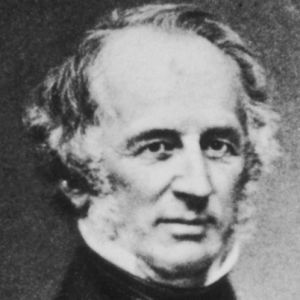
Cornelius Vanderbilt was a famous industrialist who worked in railroads and shipping. He had accumulated the largest fortune in the U.S. at the time of his death, in 1877.
Synopsis
Cornelius Vanderbilt was born on May 27, 1794, in the Port Richmond area of Staten Island, New York. He began a passenger ferry business in New York harbor with one boat, then started his own steamship company, eventually controlling Hudson River traffic. He also provided the first rail service between New York and Chicago. When he died in 1877, Vanderbilt had amassed the largest fortune accumulated in the U.S. at that time. Vanderbilt is deemed one of America's leading businessmen, and is credited for helping to shape the present-day United States.
Background and Early Years
Cornelius Vanderbilt was born on May 27, 1794, on Staten Island, New York, the son of Cornelius and Phebe Hand Vanderbilt. His father instilled in him a blunt, straightforward demeanor, and his mother, frugality and hard work. At age 11, young Cornelius quit school to work with his father, ferrying cargo and passengers between Staten Island and Manhattan. Legend has it that at age 16, Vanderbilt ran a two-mast sailing vessel, known as a periauger; the enterprise came with the understanding that he would have to share profits with his parents, who had supplied a loan. Through aggressive marketing, shrewd deals and undercutting the competition—traits that he would practice all his life—he earned more than $1,000 in his first year.
At age 18, Vanderbilt contracted with the U.S. government to supply neighboring outposts during the War of 1812. He learned the art of shipbuilding and navigation in open water. By the end of the war, he had amassed a small fleet of boats and working capital of $10,000 ferrying passengers and freight from Boston to Delaware Bay. He would eventually be given the nickname “Commodore,” which he embraced.
Troubled Family Life
On December 19, 1813, much to the dismay of his parents, Cornelius Vanderbilt married his first cousin, Sophia Johnson. The couple would eventually have 13 children, with 11 surviving to adulthood. As successful as he would be in business, he was a terrible father and husband. A lifelong misogynist who had wanted more than three sons, Cornelius paid little attention to his daughters and is believed to have cheated on his wife with prostitutes. Vanderbilt reportedly had his son Cornelius Jeremiah twice committed to a lunatic asylum. He undertook the same course of action for Sophia at one point as well, after Vanderbilt showed amorous interest in the family's young governess.
Building a Shipping Empire
In 1817, seeing the potential in a new technology, Cornelius Vanderbilt partnered with Thomas Gibbons in a steamship business, the Union Line. During his tenure with Gibbons, Vanderbilt learned how to manage a large commercial operation and became a quick study in legal matters. Gibbons was ferrying customers between New York and New Jersey, a clear violation of an 1808 state-sanctioned monopoly given to Robert Fulton and Robert Livingston. Aaron Ogden, who was operating Fulton and Livingston’s business and worked with Gibbons, sued the latter boatman for violating the monopoly. Vanderbilt and Gibbons hired Daniel Webster to defend their position. In Gibbons v. Ogden, the U.S. Supreme Court ruled in favor of Gibbons, stating the Constitution’s Commerce Clause gives Congress the exclusive authority to regulate interstate trade. Thus, it was unconstitutional for the New York legislature to give Ogden exclusive shipping rights.
After Thomas Gibbons died in 1826, Vanderbilt wanted to buy the company, but Gibbons’s son didn’t want to sell. Vanderbilt bought several boats and established the Dispatch Line, running between New York City and Philadelphia. Through aggressive marketing and low fees, Vanderbilt forced Gibbons’s son to buy him out.
Vanderbilt soon became known for his sharp business acumen. During the 1830s, he built profitable shipping lines in the New York region, undercutting competitors’ fares and offering top service. Competitors struggled and finally paid him to take his business elsewhere. He then shifted his operations to the Hudson River, going head to head against the Hudson River Steamboat Association, another monopoly. Capitalizing on the populist language of President Andrew Jackson, he named his service the "People’s Line," offering cheap fares for all. The Association bought him out for $100,000 and annual payments of $5,000. Implementing this business model several times made Vanderbilt a millionaire.
But wealth didn’t buy Vanderbilt respectability. In the 1840s, he constructed a large but modest family home at 10 Washington Place, in present-day Greenwich Village. But the city’s elites were slow to accept him, considering him uncultured and rough. His handwriting was nearly illegible, his grammar atrocious and laced with profanity. Yet he didn’t care. He despised ostentation, living a relatively simple and disciplined life.
In 1851, Vanderbilt expanded his shipping business, forming the Accessory Transit Company to transport passengers from New York City to San Francisco via the Nicaraguan isthmus. Again, his timing was perfect. The California Gold Rush brought an enormous demand for passage to the West Coast. Though offering a treacherous ride for its users, the Transit Company was a success. By 1852, his competition had had enough and offered him $40,000 a month to abandon his operations. Nearing 60 years old, Vanderbilt was ready for something else. He purchased a large yacht, christened the North Star, and took his extended family on a grand tour of Europe at the cost of half a million dollars.
Building a Railroad Empire
During the Civil War, Vanderbilt donated his fleet's largest ship, aptly named the Vanderbilt, to the Union Navy. By 1864, he had retired from shipping, having amassed nearly $30 million in wealth. At age 70, Vanderbilt turned his attention more closely to railroads, acquiring the New York & Harlem and Hudson Line (which ran along the Erie Canal), and then going after the New York Central Railroad. In a ruthless act during a bitter winter when the Erie Canal was frozen over, he refused to accept Central’s passengers or freight, cutting them off from connections to western cities. Forced to capitulate, the Central Railroad sold Vanderbilt controlling interest, and he eventually consolidated his hold on rail traffic from New York City to Chicago. This new conglomerate revolutionized rail operations by standardizing procedures and timetables, increasing efficiency and decreasing travel and shipment times.
During the 19th century, as rapid developments in technology and innovation enveloped society, many Americans sought meaningful forms of spiritual expression. Some gravitated to more traditional religions while others became fascinated with the occult. After his wife’s death in 1868, Vanderbilt sought the help of the Chaflin sisters, two mediums who claimed they could bring forth the spirits of the deceased. His family however was not impressed and feared their father would fall victim to charlatans. They introduced him to a distant female cousin, Frank Armstrong (so named due to a promise her parents made to name their first child after a family friend), his junior by decades, who became his second wife.
In 1871, Cornelius Vanderbilt financed a monument to his empire: the Grand Central Depot. The terminal for the New York Central Railroad was constructed with features like elevated platforms, a glass balloon roof spanning all of the tracks and boarding areas only accessible to the passengers. At the city’s insistence, the tracks were submerged below street level to reduce noise and smoke.
Final Years and Legacy
Towards the end of his life, Vanderbilt had no plans to pass along his fortune to charity. He had lived most of his life in relative modesty considering his stratospheric wealth. He sole extravagance seemed to be buying race horses. However, in 1873, his wife, Frank, introduced him to the Reverend Holland Nimmons McTyeire, who asked Vanderbilt to help him fund a Methodist University in Tennessee. Discussions went on for several years and by the time of his death, Vanderbilt had promised a gift approaching $1 million for what would become Vanderbilt University.
In 1876, Cornelius Vanderbilt became ill and began an eight-month death march. In keeping with his pugnacious personality, he was a horrible patient, raging at his doctors, calling them “old grannies” and at one point leaving his death bed to lecture reporters who were standing vigil outside his house. He died on January 4, 1877, presumably of exhaustion, brought on by complications associated with intestinal, stomach and heart disorders, which may have also been connected to syphilis.
In his will, he left $90 million, the bulk of his estate, to his son William Henry, who worked in his father's business, and $7.5 million to William’s four sons. His other son, the sickly Cornelius Jeremiah, received a $200,000 trust fund. His wife and daughters allegedly received amounts ranging anywhere from $200,000 to $500,000 and property and stock.
Today, it is estimated that Cornelius Vanderbilt would have been worth more than $200 billion, if calculating his wealth with the nation’s gross domestic product in 1877. This would make him the second wealthiest person in American history after Standard Oil co-founder John D. Rockefeller. Among Vanderbilt’s descendants are fashion designer Gloria Vanderbilt and her son, television news anchor Anderson Cooper.
Publisher Edward J. Renehan Jr. wrote 2007's Commodore: The Life of Cornelius Vanderbilt while historian T.J. Stiles penned a Pulitzer Prize-winning book on the industrialist's life—The First Tycoon: The Epic Life of Cornelius Vanderbilt (2009).
(Source: Biography.com)
More:
 by
by
 Edward J. Renehan Jr.
Edward J. Renehan Jr.
 Welcome everyone to our November Book of the Month selection. We are going to be digging into the life of Cornelius Vanderbilt. This is a heftier book than most of our previous selections so we have an aggressive reading schedule.
Welcome everyone to our November Book of the Month selection. We are going to be digging into the life of Cornelius Vanderbilt. This is a heftier book than most of our previous selections so we have an aggressive reading schedule. We will be covering chapters 1-5 this week. Let's kick things off with a few introductory questions:
Week One Discussion Questions – Kick Off and Introductions
1. Introduce yourself and tells us what interest you have in this book.
2. What do you know of Cornelius Vanderbilt?
3. Are you familiar with the background of the steamboat and shipping business?
 Hello! I first became interested in the Vanderbuilt family back in the 1980s when reading about the custody battle involving Gloria Vanderbuilt's future. I've gone forward in time with the family. I welcome the opportunity to go back to the beginning with this knowledgeable Group.
Hello! I first became interested in the Vanderbuilt family back in the 1980s when reading about the custody battle involving Gloria Vanderbuilt's future. I've gone forward in time with the family. I welcome the opportunity to go back to the beginning with this knowledgeable Group.
 Welcome Portia! This is a great book for background on the Vanderbilts and see where it all started. Looking forward to having you in the discussion.
Welcome Portia! This is a great book for background on the Vanderbilts and see where it all started. Looking forward to having you in the discussion.
 Hi Peter here.
Hi Peter here.Vanderbilt is an interesting character, but I don't know much about him. I've read more about later tycoons.
 We are kicking off our reading with chapters 1-5 this week.
We are kicking off our reading with chapters 1-5 this week.Chapter Overviews and Summaries
Week One
(view spoiler)
 I am reading along and enjoying the book so far, but I am finding the author's prose a bit hyperbolic. Are other people finding that? Or, perhaps, it is Vanderbilt who is hyperbolic.
I am reading along and enjoying the book so far, but I am finding the author's prose a bit hyperbolic. Are other people finding that? Or, perhaps, it is Vanderbilt who is hyperbolic.
 Peter wrote: "I am reading along and enjoying the book so far, but I am finding the author's prose a bit hyperbolic. Are other people finding that? Or, perhaps, it is Vanderbilt who is hyperbolic."
Peter wrote: "I am reading along and enjoying the book so far, but I am finding the author's prose a bit hyperbolic. Are other people finding that? Or, perhaps, it is Vanderbilt who is hyperbolic."I would say a little of both, don't you think?
(view spoiler)
 Hi It's Helga here to join in the reading of this book.
Hi It's Helga here to join in the reading of this book. I don't know a whole lot about Vanderbilt and agree on the comment above that it is hyperbolic in the authors prose and Vanderbilt himself. It should ba interesting.
 Teri wrote: "Peter wrote: "I am reading along and enjoying the book so far, but I am finding the author's prose a bit hyperbolic. Are other people finding that? Or, perhaps, it is Vanderbilt who is hyperbolic."..."
Teri wrote: "Peter wrote: "I am reading along and enjoying the book so far, but I am finding the author's prose a bit hyperbolic. Are other people finding that? Or, perhaps, it is Vanderbilt who is hyperbolic."..."(view spoiler)
 Hi Portia ~ Please make sure to put your comments on the book in spoiler tags. See messages 4 and 5 above.
Hi Portia ~ Please make sure to put your comments on the book in spoiler tags. See messages 4 and 5 above.Response to Portia - Staten Island Ferry
(view spoiler)
 Apologize in the delay on posting this one. I have been traveling all day and just got to a computer:
Apologize in the delay on posting this one. I have been traveling all day and just got to a computer:Week Two Discussion Questions – Weekly Wrap-Up
(view spoiler)
Books mentioned in this topic
Commodore: The Life of Cornelius Vanderbilt (other topics)The First Tycoon: The Epic Life of Cornelius Vanderbilt (other topics)
Authors mentioned in this topic
Edward J. Renehan Jr. (other topics)T.J. Stiles (other topics)



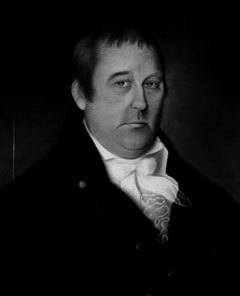
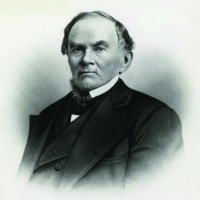


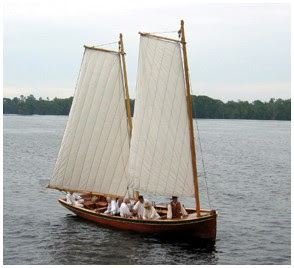




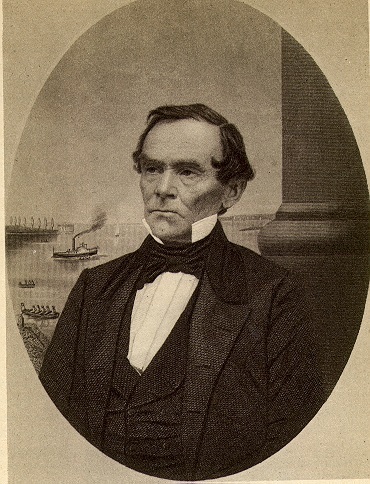
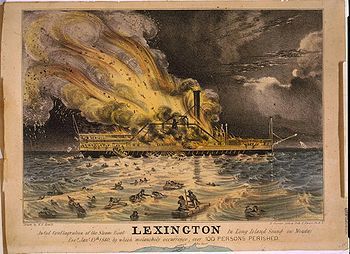
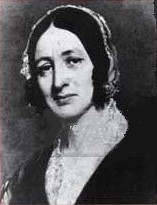



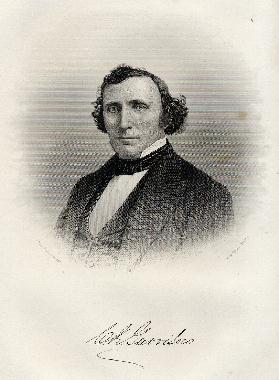
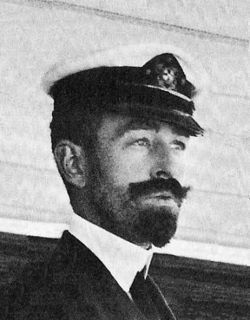
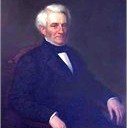






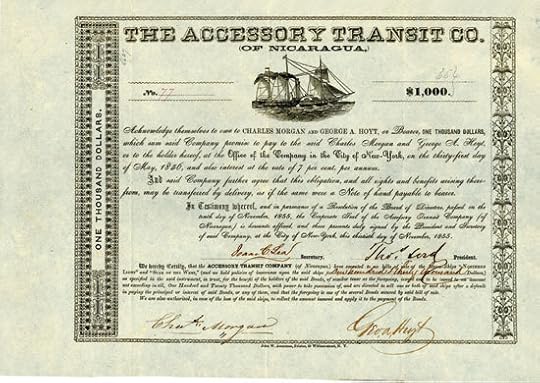
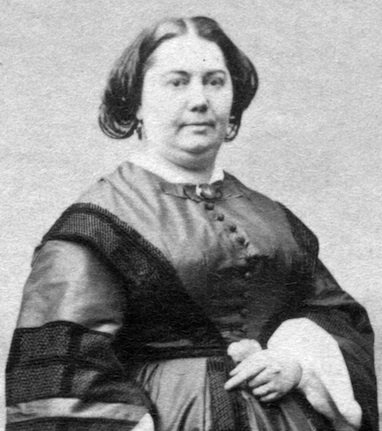
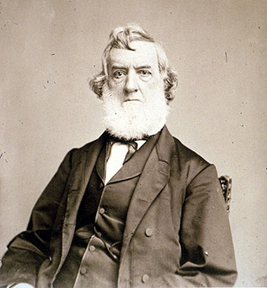



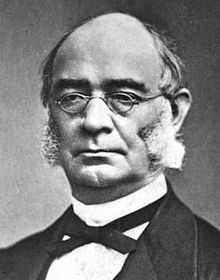
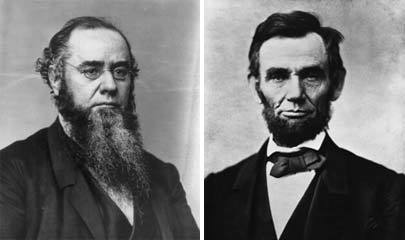

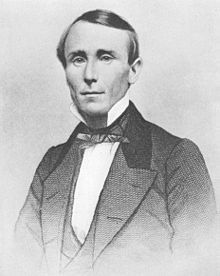
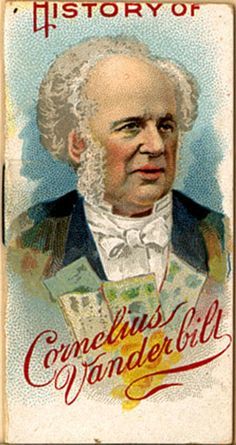


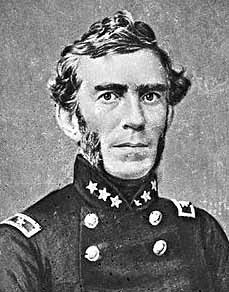


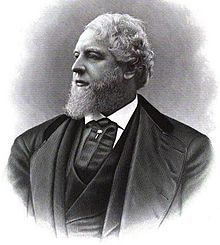
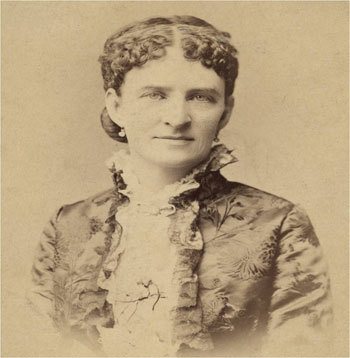



Synopsis:
NATIONAL BESTSELLER
WINNER OF THE NATIONAL BOOK AWARD
A gripping, groundbreaking biography of the combative man whose genius and force of will created modern capitalism.
Founder of a dynasty, builder of the original Grand Central, creator of an impossibly vast fortune, Cornelius “Commodore” Vanderbilt is an American icon. Humbly born on Staten Island during George Washington’s presidency, he rose from boatman to builder of the nation’s largest fleet of steamships to lord of a railroad empire. Lincoln consulted him on steamship strategy during the Civil War; Jay Gould was first his uneasy ally and then sworn enemy; and Victoria Woodhull, the first woman to run for president of the United States, was his spiritual counselor. We see Vanderbilt help to launch the transportation revolution, propel the Gold Rush, reshape Manhattan, and invent the modern corporation—in fact, as T. J. Stiles elegantly argues, Vanderbilt did more than perhaps any other individual to create the economic world we live in today.
In The First Tycoon, Stiles offers the first complete, authoritative biography of this titan, and the first comprehensive account of the Commodore’s personal life. It is a sweeping, fast-moving epic, and a complex portrait of the great man. Vanderbilt, Stiles shows, embraced the philosophy of the Jacksonian Democrats and withstood attacks by his conservative enemies for being too competitive. He was a visionary who pioneered business models. He was an unschooled fistfighter who came to command the respect of New York’s social elite. And he was a father who struggled with a gambling-addicted son, a husband who was loving yet abusive, and, finally, an old man who was obsessed with contacting the dead.
The First Tycoon is the exhilarating story of a man and a nation maturing together: the powerful account of a man whose life was as epic and complex as American history itself.
About the Author
T.J. Stiles is the author of Custer's Trials: A Life on the Frontier of a New America, winner of the 2016 Pulitzer Prize for history, published by Alfred A. Knopf. He also wrote The First Tycoon: The Epic Life of Cornelius Vanderbilt, which received the 2010 Pulitzer Prize for biography and 2009 National Book Award for nonfiction, and Jesse James: Last Rebel of the Civil War, winner of the Ambassador Book Award and the Peter Seaborg Award for Civil War Scholarship. An elected member of the Society of American Historians, he served on the 2012 faculty of the World Economic Forum, was a 2011 Guggenheim fellow in biography, and was the first Gilder Lehrman Fellow in American History, 2004–05, at the Dorothy and Lewis B. Cullman Center for Scholars and Writers at the New York Public Library. He now lives in Berkeley, California, with his wife and children.
(Source: TJStiles.net)